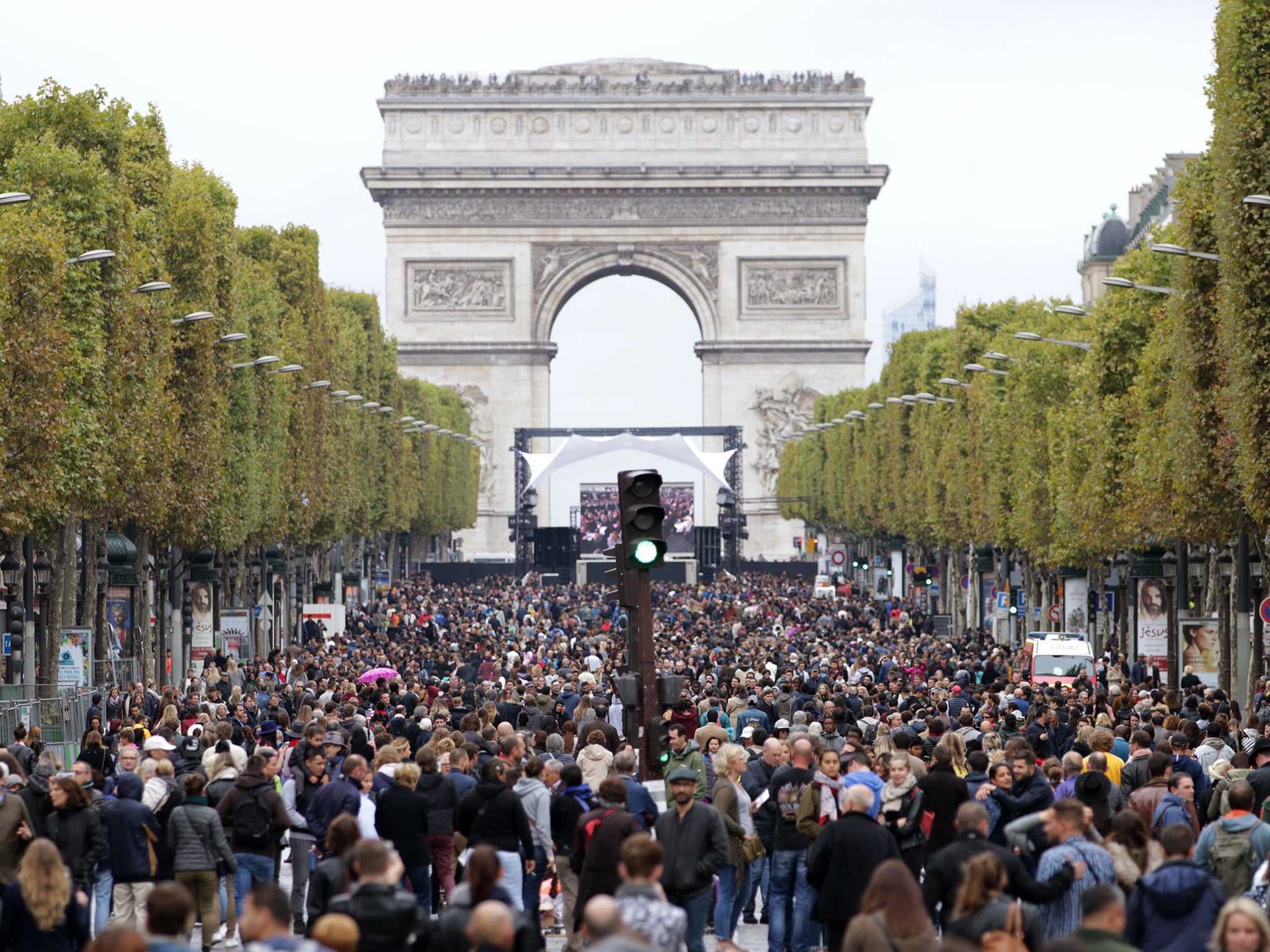Paris bans cars for a day in bid to tackle pollution
Mayor Anne Hidalgo says she wants to model the French capital on Copenhagen, which is one of the most cycling friendly cities in the world

Parisians have been encouraged to leave their cars at home for the city’s third official “Car-Free Day”.
Vehicles were forbidden from all of the city’s historic centre for the day on Sunday, making way for environmentally friendly modes of transport such as cycling.
The first journee sans voiture (day without cars) was held in September 2015 and was found to reduce exhaust emissions by 40 per cent. The idea has since been repeated twice.
But this time the zone has been expanded, covering 40 square miles over the historical centre of the French capital, and was in force between 11am and 6pm.
Paris Mayor Anne Hidalgo was first elected in 2014 on a promise to tackle pollution in the city, which is estimated to kill 6,000 every year. She has begun building new bus and cycling lanes to reclaim the roads from cars.
She told French newspaper Le Parisien that she was hoping to model Paris on Copenhagen in Denmark, which is regarded as one of the most cycling friendly cities in the world.
She said: “One day, in a very long time, the ring road around Paris will be more of a highway, like in Seoul, where the ring road has become a park with a river in the middle.”
She was referring to a scheme in the South Korean capital where a 1970s overpass which was due for demolition was instead converted into a 983-metre “plant village” which was unveiled earlier this year.
Lisa Murray's climate change photography
Show all 12But Ms Hidalgo, whose term ends in 2020, says she does not want to ban cars from the city completely but pointed out that only one in ten commuters travel to work by car.
She said: “We are changing the model of mobility. By offering alternatives, we can do without a personal car. That's my goal.”
The city was not entirely shut down to cars as special vehicles such as ambulances and taxis were still allowed on the streets and the surrounding suburbs were unaffected.
Residents who have a genuine emergency or are elderly or disabled can travel by car but were asked to stick to the 20mph speed limit in place.
Subscribe to Independent Premium to bookmark this article
Want to bookmark your favourite articles and stories to read or reference later? Start your Independent Premium subscription today.

Join our commenting forum
Join thought-provoking conversations, follow other Independent readers and see their replies